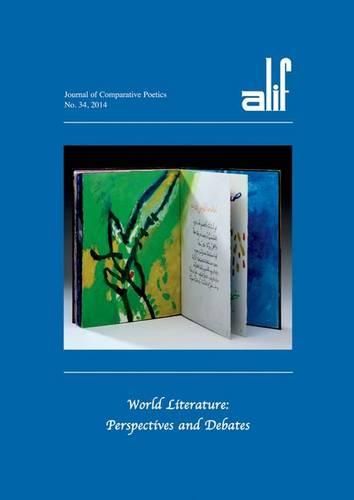Readings Newsletter
Become a Readings Member to make your shopping experience even easier.
Sign in or sign up for free!
You’re not far away from qualifying for FREE standard shipping within Australia
You’ve qualified for FREE standard shipping within Australia
The cart is loading…






As one of the first non-European journals to critically address the category of Weltliteratur bilingually from the perspective of the Global South, this special issue of Alif addresses this problem theoretically and empirically. The critical conversation about the problem of the category of Weltliteratur is not only extended beyond the European and North American sphere that has largely dominated and framed the discussion of Weltliteratur, but is juxtaposed formally in a way that permits us to understand that there are other world literatures that allow us to reexamine the contending theories, practices, and underlying assumptions of Weltliteratur. Essays in this volume emphasize in different ways the inherent tension between postcolonial studies and world criticism, and to that extent open up new realms for the discovery of new knowledges, new epistemes, modes of conversation, and communication.
$9.00 standard shipping within Australia
FREE standard shipping within Australia for orders over $100.00
Express & International shipping calculated at checkout
As one of the first non-European journals to critically address the category of Weltliteratur bilingually from the perspective of the Global South, this special issue of Alif addresses this problem theoretically and empirically. The critical conversation about the problem of the category of Weltliteratur is not only extended beyond the European and North American sphere that has largely dominated and framed the discussion of Weltliteratur, but is juxtaposed formally in a way that permits us to understand that there are other world literatures that allow us to reexamine the contending theories, practices, and underlying assumptions of Weltliteratur. Essays in this volume emphasize in different ways the inherent tension between postcolonial studies and world criticism, and to that extent open up new realms for the discovery of new knowledges, new epistemes, modes of conversation, and communication.